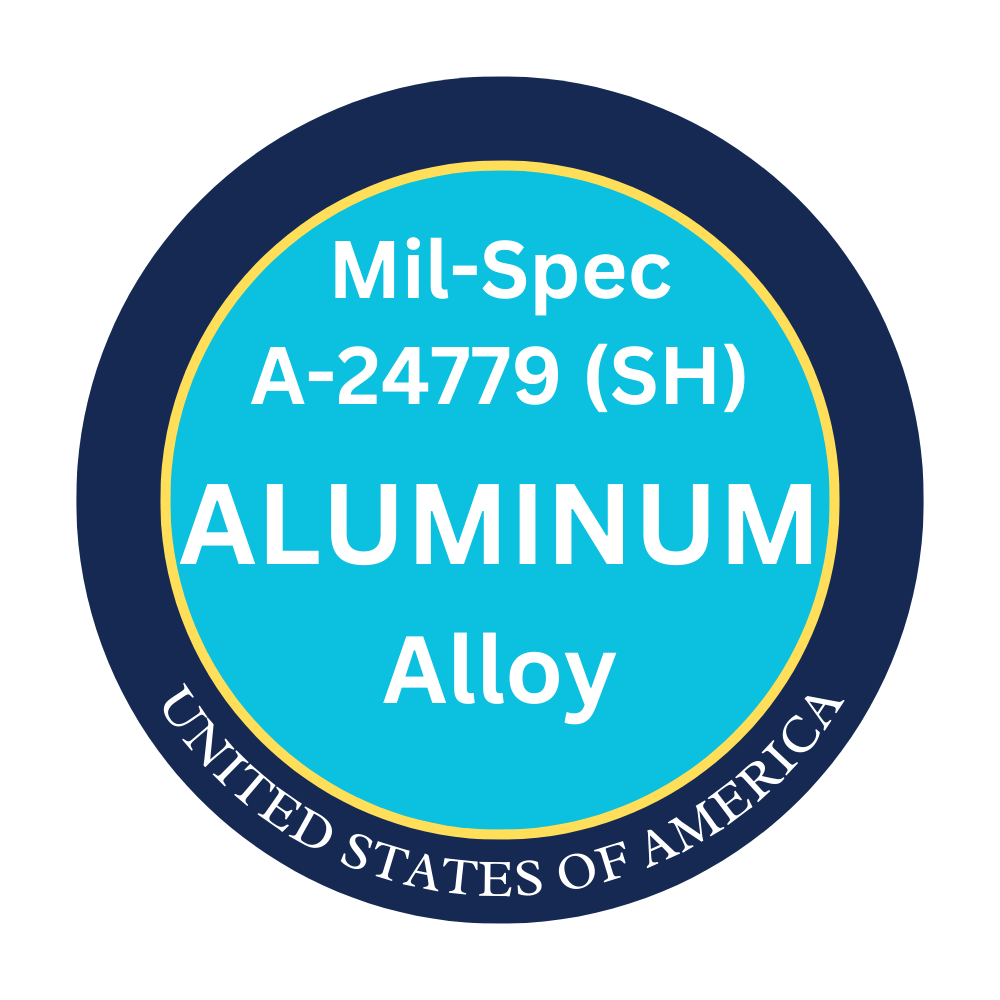Alloy Selection - Aluminum
Posted by BoatZincs.com on 2024 Jan 29th
 “What kind of anodes do I need?”
“What kind of anodes do I need?”
For new boaters, or for boaters who have never changed their own anodes before, that’s an extremely common question. And it’s one that, we’ve noticed, the internet seems to have a hard time answering directly. Do a search, and you’re tasked with wading through bad advice, old wisdom, dissenting opinions, and marketing.
So here in our series on the basics of corrosion and corrosion control, we’d like to take the opportunity to clear things up. Boaters have the option of zinc, aluminum, or magnesium. And the best alloy for you will depend on a few factors.
ALUMINUM
salt, brackish, or freshwater.
Mil-Spec sacrificial aluminum is a very active and useful alloy. Whether you run your boat in salt, brackish, or freshwater, aluminum anodes will protect your boat’s underwater metals. This has always been the case – the US Navy helped establish the Mil-Spec for aluminum around the same time they were establishing the zinc alloy. But it wasn’t until a decade or so ago that aluminum became a viable option for a lot of boaters. Around that time, availability took off, bolstered by an increasing number of OEMs stocking aluminum anodes on their boats out of the factory. With that new level of variety, costs came down. For the longest time, aluminum was reliably more expensive than zinc. But that hasn’t been the case for some time. Nowadays, aluminum and zinc anodes are much, much closer in price. Usually, aluminum is even a bit cheaper.
Now, in freshwater, aluminum is actually the second-best option. Magnesium, which is even more active than aluminum, is nearly always the better bet. But if there’s even a chance of running in brackish or saltwater, for even the shortest trip, it’s a good idea to count on aluminum anodes. Magnesium (which we’ll discuss in more detail next week) will react dramatically to salinity and rapidly corrode. There are also scenarios where aluminum, being generally easier to work with, may be preferred. House boats, for instance, often make use of long strips of anodic material that are cut to size before installation. Most customers turn to aluminum for those, with comparatively few opting for magnesium.
In brackish water, aluminum is by far the best choice available. Zinc becomes less and less effective as the salinity dips. Ultimately, a zinc anode will passivate in brackish water. Even for short stays, zinc should not be counted on in brackish water where it can be helped.
So that covers freshwater and brackish water. It’s slightly more complicated for saltwater but here’s the short version: assuming you boat in saltwater 100% of the time, there isn’t a wrong answer here. Saltwater boaters will be protected with zinc or aluminum anodes. That being said, chemistry does give aluminum the edge. Again, aluminum is a very active alloy. Aluminum anodes will last about as long as zinc ones, but that’s not to say they’re going to corrode significantly faster. Expect to change your anodes at the same rate. One last thing to point out: the vast majority of customers who switch to aluminum do not bother switching back.
That, in broad strokes, covers the use cases for aluminum anodes. As always, we’re available by phone or by email if you have any questions at all.
